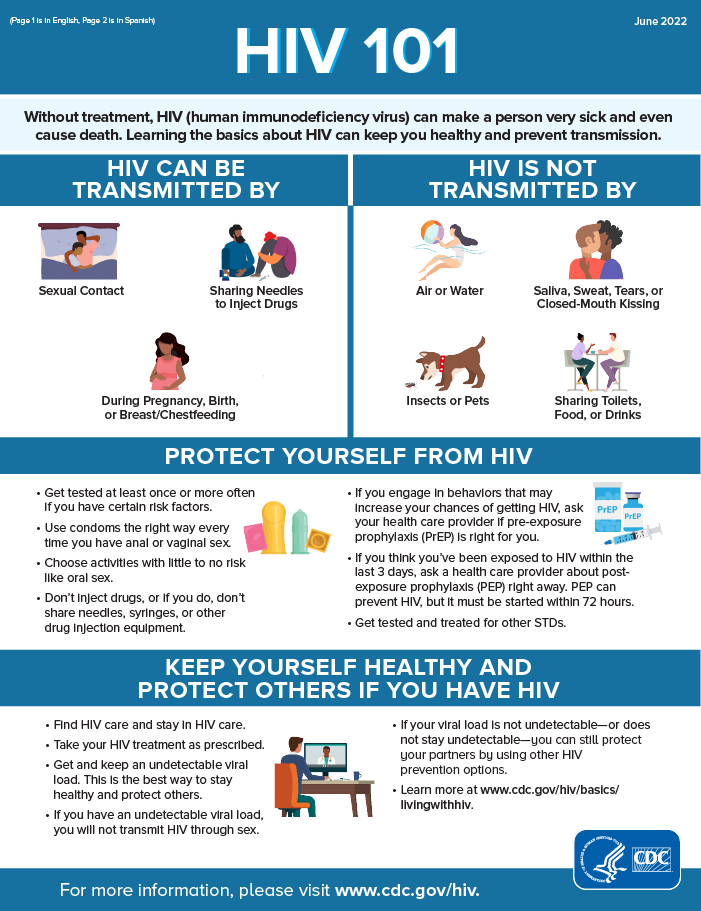
What is HIV?
- HIV (human immunodeficiency virus) is a virus that attacks the body’s immune system. If HIV is not treated, it can lead to AIDS (acquired immunodeficiency syndrome).
- There is currently no effective cure. Once people get HIV, they have it for life.
- But with proper medical care, HIV can be controlled. People with HIV who get effective HIV treatment can live long, healthy lives and protect their partners.
How do I know if I have HIV?
The only way to know if you have HIV is to get tested. Knowing your HIV status helps you make healthy decisions to prevent getting or transmitting HIV.
Are there symptoms?
- For many, yes. Most people have flu-like symptoms within 2 to 4 weeks after infection. Symptoms may last for a few days or several weeks.
- Having these symptoms alone doesn’t mean you have HIV. Other illnesses can cause similar symptoms.
- Some people have no symptoms at all. The only way to know if you have HIV is to get tested.
What are the stages of HIV?
When people with HIV don’t get treatment, they typically progress through three stages. But HIV treatment can slow or prevent progression of the disease. With advances in HIV treatment, progression to Stage 3 (AIDS) is less common today than in the early years of HIV.
Stage 1 – Acute HIV Infection
- People have a large amount of HIV in their blood and are very contagious.
- Many people have flu-like symptoms.
- If you have flu-like symptoms and think you may have been exposed to HIV, get tested.
Stage 2 – Chronic HIV Infection
- This stage is also called asymptomatic HIV infection or clinical latency.
- HIV is still active and continues to reproduce in the body.
- People may not have any symptoms or get sick during this phase but can transmit HIV.
- People who take HIV treatment as prescribed may never move into Stage 3 (AIDS).
- Without HIV treatment, this stage may last a decade or longer, or may progress faster. At the end of this stage, the amount of HIV in the blood (viral load) goes up and the person may move into Stage 3 (AIDS).
Stage 3 – Acquired Immunodeficiency Syndrome (AIDS)
- The most severe stage of HIV infection.
- People with AIDS can have a high viral load and may easily transmit HIV to others.
- People with AIDS have badly damaged immune systems. They can get an increasing number of opportunistic infections or other serious illnesses.
- Without HIV treatment, people with AIDS typically survive about three years.
More Information

Information Leaflet
The US Centres for Disease Control (CDC) have published this informative summary leaflet
For more detailed information click here for the US CDC website.


